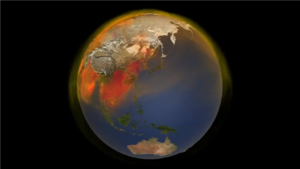 Geolabe—a prize winner in the 2023 Entrepreneurs Challenge—developed a way to use artificial intelligence to identify global methane emissions. Methane is a greenhouse gas that significantly contributes to global warming, and this promising new technology could provide data to help decision makers develop strategies to mitigate climate change.
Geolabe—a prize winner in the 2023 Entrepreneurs Challenge—developed a way to use artificial intelligence to identify global methane emissions. Methane is a greenhouse gas that significantly contributes to global warming, and this promising new technology could provide data to help decision makers develop strategies to mitigate climate change.
The Geolabe team developed a deep learning architecture that automatically identifies methane signatures in existing open-source spectral satellite data and deconvolves the signal from the noise. This AI method enables automatic detection of methane leaks at 200kg/hour and above, which account for more than 85 percent of the methane emissions in well-studied, large oil and gas basins. Information gained using this new technique could help inform efforts to mitigate methane emissions on Earth and automatically validate their effects.
This image taken from a NASA visualization shows the complex patterns of methane emissions around the globe in 2018, based on data from satellites, inventories of human activities, and NASA global computer models.
Credit: NASA’s Scientific Visualization Studio
